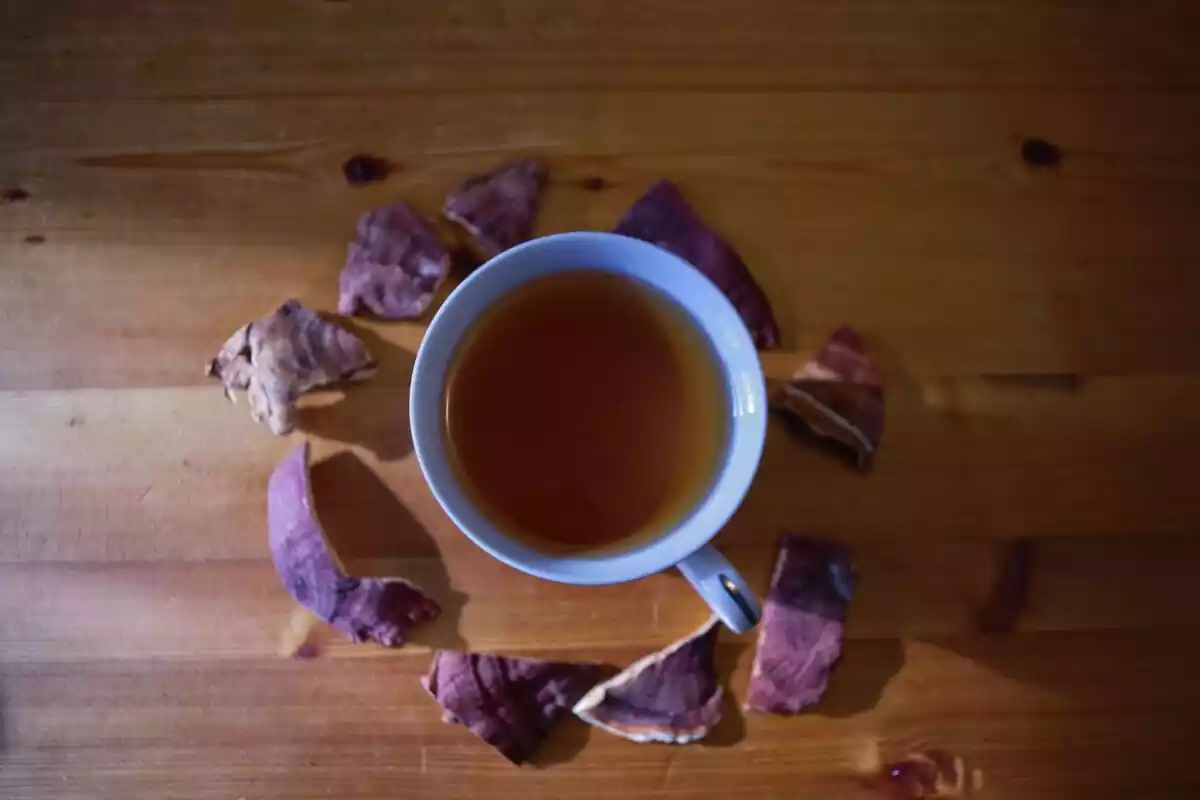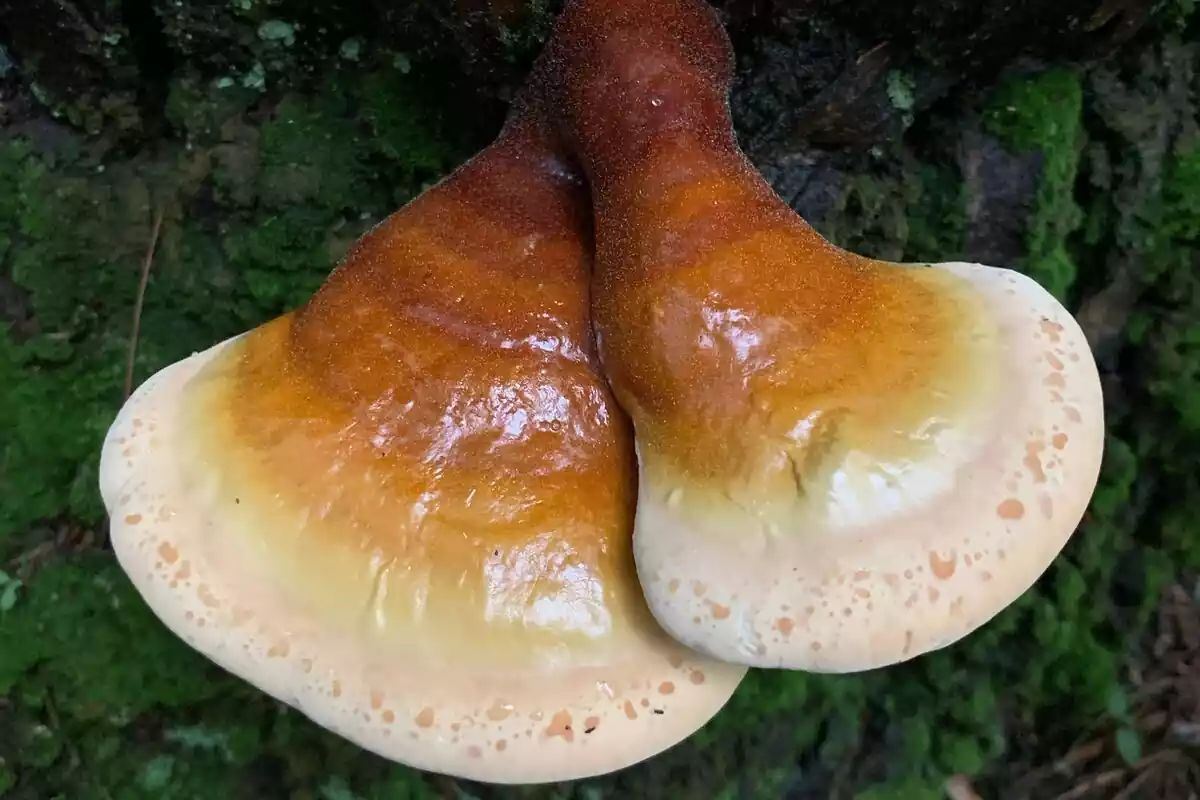Reishi mushroom is an Asian medicinal fungus used to treat a wide variety of health conditions, like asthma, high cholesterol, hypotension, and even the common cold. This fungus's antitumoral and antiviral properties are just a couple the qualities that make it stand out.
In this article, to further inform you about this fungus, we explain what Ganoderma or reishi mushroom is, its uses, benefits, possible side-effects, and finally, precautions that should be taken into account before consuming this mushroom's extract.
What is reishi mushroom?
Ganoderma lucidum is one of the most popular medicinal fungi in China, Japan, and the United States. It is also known as reishi mushroom or lingzhi, in Chinese.
The fungus is actually found quite rarely in its wild form in Asia. In ancient China, this mushroom was so highly valued that it was saved just for emperors and was known as "the elixir of life." Afterward, in the 70s, Japenese researchers first began to cultivate this fungus successfully.
Reishi mushrooms usually grow near tree trunks. The parts of this mushroom that benefit health include its cap, spores, and mycelium. As far as its appearance goes, it has an asymmetrical pilus, which is hard and shiny and appears in a variety of colors.
To be more specific, this fungus comes in red, green, white, black, yellow, and purple. Each color variation is the result of different environmental conditions that the mushroom could be exposed to.
However, there is some speculation that certain colors of reishi mushrooms could have stronger effects or might be more effective than others when it comes to improving specific health conditions.
Preparation and consumption
Most Ganoderma available on the market have been cultivated, which means that they are not wild. This type of mushroom is available in its natural form, -both fresh and dried-, in capsules, oral solutions, extracts, pills, tea bags, or even in the form of coffee grounds.
Between 1.8 and 2.4 grams per day is the recommended dosage when consumed as a capsule. However, the dose varies greatly depending on the condition being treated and the strength of the part of the mushroom that is being used.
Reishi mushroom benefits
Reishi mushroom extract is considered one of the most important and widely used extracts in Asian medicine. It can be used for purposes in nearly all of the body's systems. Not only is it believed to benefit physical ailments, but it can also even produce a state of zen in the person who consumes it, and thus increase spiritual energy in Taoists and other Asian spiritual seekers.
This fungus has been known to calm nerves and promote emotional well-being, to improve memory and prevent or slow down senility. Also, some research points to this mushroom being an adaptogen or a natural regulator - this means that it inhibits the immune system of hyperactive people, and on the other extreme, it stimulates those that need more energy.
On the same note, besides impacting the immune system, reishi mushroom also reportedly possesses antitumoral and antiviral properties. Some studies indicate that Ganoderma inhibits apoptosis (programmed cell death) in the white blood cells. Likewise, Ganoderma lucidum also contains vital nutrients like potassium (K), magnesium (Mg), calcium (C), and germanium (Ge).
Finally, scientific research shows that the compounds found in Ganoderma reduce blood sugar levels and interfere in the coagulation of the blood platelets. This reduced coagulation could explain ganoderma's effectiveness in preventing strokes and atherosclerosis.

Uses for Ganoderma lucidum
Reishi mushroom is consumed all over Asia to aid in the management of cancer and to stimulate the immune system of those undergoing chemotherapy.
It is also used to treat myasthenia gravis and systemic lupus erythematosus, both autoimmune diseases, and to treat symptoms of viral infections like colds or canker sores.
This mushroom's extract is also used to treat nervous system disorders, to cure insomnia, reduce stress, get rid of nervous exhaustion, and increase determination and focus.
Studies show that some components of Ganoderma have a powerful antihistaminic effect that interrupts the development of allergic reactions and, also can help to manage circulatory system pathologies. Some of the most common ones are the following:
Bronchial asthma
Hay fever
Allergies
Vertigo
Atherosclerosis
Cardiac arrhythmia
Coronary disease
High blood pressure
High blood sugar
High cholesterol
Low blood pressure
Other Uses
Ganoderma lucidum is also used to treat a whole spectrum of different conditions, but generally, there islittle or no scientific evidence of its effectiveness in these cases. Although there are many others, here we will list a few pathological conditions on the list:
Gastroenteritis
Diarrhea
Constipation
Gallstones
Acne
Hair loss
Kidney inflammation
Menstrual cramps
Erectile dysfunction
Side-effects
Although toxic reactions to Ganoderma have not been reported, people that usually are allergic to other mushrooms could have an allergic reaction to this one as well...
Likewise, taking large doses of reishi mushrooms -from 2 to 9 grams- on a regular basis for between 3-6 months could cause symptoms like diarrhea, stomach pain, dizziness, and nasal hemorrhaging.
Interactions with other substances
Interactions with Ganoderma and other types of herbs and fungi have not been recorded. However, negative interactions have been identified with warfarin, an anticoagulant (blood thinner).
Also, since reishi mushroom extract could cause a drop in blood pressure, people that take prescription antihypertensive drugs (medication to reduce blood pressure) should only consume this fungus under the controlled supervision of a medical professional.
References
Davidson, T., & Frey, R. J. (2005). Ganoderma. In J. L. Longe (Ed.), The Gale Encyclopedia of Alternative Medicine (2nd ed., Vol. 2, pp. 804-807). Detroit: Gale.
